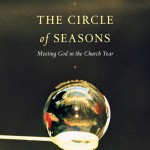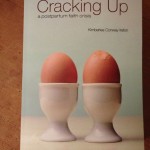
Psalm 122
I was glad when they said unto me,
“We will go into the house of the Lord.”
Our feet shall stand in thy gates, O Jerusalem.
Jerusalem is built as a city that is at unity in itself.
For thither the tribes go up, even the tribes of the Lord
to testify unto the Lord, to give thanks unto the Name of the Lord.
For there is the seat of judgement,
even the seat of the house of David.
O pray for the peace of Jerusalem:
they shall prosper that love thee.
Peace be within thy walls
and plenteousness within thy palaces.
For my brethren and companions’ sakes
I will wish thee prosperity.
Yea, because of the house of the Lord our God,
I will seek to do thee good.
~
When early Christian commentators read the Old Testament (which was their Bible, as the New Testament had not yet been canonized), they were quite playful in their interpretations of the text. Over the early centuries of Christianity, they developed a four-part “method” of interpretation which gave wide latitude for applying the text to various circumstances.
Their reading of “Jerusalem” makes a good example. They read it literally, of course, as a city, the city of Zion, the place of the Temple, the dwelling place of God. They read it allegorically, as the Church, built on the Rock (St. Peter), springing up in the place of the destroyed Temple in Jerusalem. They read it tropologically, as the individual Christian, the place where God in Christ now dwells. And they read it anagogically, as the New Jerusalem in which every tear shall be wiped from every eye and God will finally dwell with us in fullness of life forevermore.
So when they read, Pray for the peace of Jerusalem, their interpretation encompassed a whole lot of meaning, and a whole lot of possible actions could result from those six words. Today, I want to play in the same vein.
Pray for the peace of Jerusalem.
Absolutely I think we can and should read these words literally and literally do what they command: Pray for the peace of Jerusalem. God knows how desperately that city needs peace.
But as an American in this election year, I think we Americans can also read those words as pertaining to our own country and the lack of peace and unity we see and hear about every day. In fact, I am becoming increasingly convicted of my own role in the appalling tenor of our political system in general and our presidential race in particular. At the same time, I am becoming convinced that the absolute most important thing I can do to change this system and its ugliness is to pray.
Pray for the peace of Jerusalem.
I have not prayed consistently or constantly for our political leaders. Not for ones I like. Not for ones I dislike. Prayer is the one thing that I can do for my leaders, and I have failed to do it. If they are ugly and dishonest, if they are silencing dissent, if they are misusing their power, I am in some small way responsible because I have not asked God to blow the Holy Spirit through their lives, to soften their hearts, to give them wisdom and prudence.
More, having failed to pray for them, I have then complacently (and sometimes smugly) mocked them. Idiots. Jerks. Morons. Corrupt, morally bankrupt fools. I have joined the pile-on of scorn and ad hominem attacks and gleeful gloating over the blunder or fall of a leader I didn’t like.
In so doing, I have fed the outrage of perhaps the most outraged citizenry that ever walked the face of the earth, most of us outraged simply for the sake of how it makes us feel: superior, smug, and self-satisfied. Those are more tolerable feelings than fear. For it is fear that feeds our outrage, but outrage only cloaks and obscures fear; it cannot drive fear out. Only love can drive out fear, and the best way to love those we don’t know, don’t like, or can’t reach is to pray for them.
Pray for the peace of Jerusalem.
I believe that prayer changes things. I believe that God works through prayer just as much as He works through action. I believe He can accomplish more through my prayers than He can through my actions. My actions are woefully finite, bound by space and my own physical limitations; my prayers, moving at the speed of thought and bound only by the limits of imagination, can encompass far more.
I believe that there is always something I can do in any and every situation: I can pray.
And yet, I haven’t. I don’t.
Pray for the peace of Jerusalem.
This Lent, I repent of my prayerlessness. I repent of my self-satisfaction, indifference, and scorn. I repent of my failure to do the one thing I could do to further peace in this country, this world.
I have no sway in Washington, D.C., or London or Moscow or Damascus. I have no sway on the campaign trail. But God does. He has access to every single heart, the hearts of our leaders as much as our own. And I have access to God. I can approach His throne of grace with confidence and ask Him to bless the leaders of this country, the leaders of this world, with wisdom and compassion and courage. And He is able to do far more than I can ask or even imagine.
Pray for the peace of Jerusalem.
Frank Laubach, missionary to the Philippines in the mid-20th century wrote these words in the wake of World War II. They are as relevant now as they were then, perhaps more so.
Prayer is likely to be undervalued by all but wise people because it is so silent and so secret. We are often deceived into thinking that noise is more important than silence. War sounds far more important than the noiseless growing of a crop of wheat, yet the silent wheat feeds millions, while war destroys them.
Nobody but God knows how often prayers have changed the course of history. Many a man who prayed received no credit excepting in heaven. We are tempted to turn from prayer to something more noisy like speeches or guns, because our motives are mixed. We are interested in the making of a better world, of course, but we also want people to give us credit for what we have done.
Secret prayer for others all during the day is an acid test of our unselfishness. Our little selves must fade out, leaving a self-forgetting channel, through which God’s warmth flows unhindered in lovely unending prayer. The highest form of communion is not asking God for things for ourselves, but letting Him flow down through us, out over the world—in endless benediction.
Through our prayers, we can be the means by which God showers peace and love and blessing into our divided country, our war-torn world. The only question is, will we pray?
Photo by Keith Ewing, Creative Commons via Flickr.

